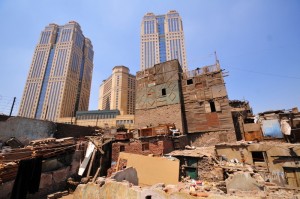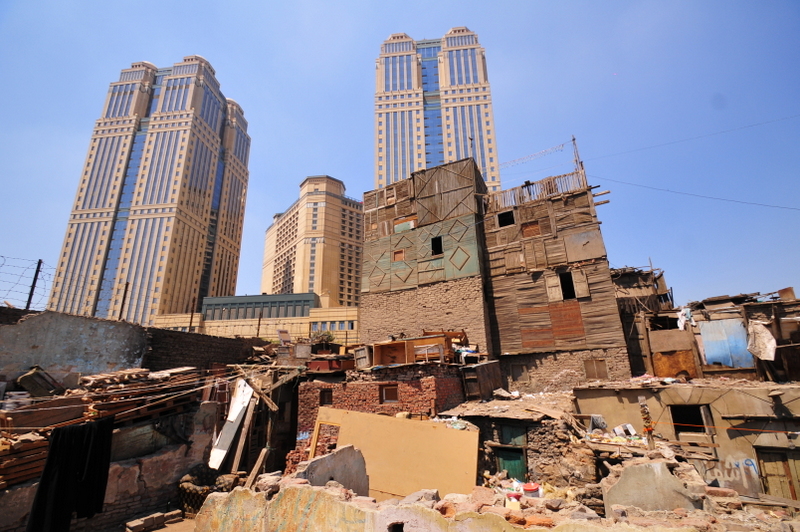
(Photo by: Hassan Ibrahim\File Photo)
The administrative court revoked on Wednesday a decision by former Cairo Governor Abdel Qawi Khalifa to temporarily seize the informal residential area of Ramlet Boulak and relocate its residents.
Ramlet Boulak residents filed the lawsuit calling for the revocation of the decision with the assistance of the Egyptian Initiative for Personal Rights (EIPR) and the Egyptian Centre for Economic and Social Rights (ECESR).
The civil society organisations released a joint statement welcoming the verdict on Wednesday, saying it was “a victory” for the residents of Ramlet Boulak.
“It gives them a push to face the injustice exercised against them,” the statement read.
South Cairo criminal court postponed on Monday the trial of 51 defendants accused in the Nile city clashes case until 23 September. The 51 defendants have been held for over 13 months where four defendants are being tried for murder while other charges include rioting and vandalism.
The clashes shed light on the problems faced by Ramlet Boulak residents. In a statement released in March, the residents accused the governorate of trying to circumvent the court case regarding their eviction by issuing temporary confiscation orders under the guise of developing the land.
Ismail Saber, a Ramlet Boulak resident, said other residents happily received the news of the court verdict.
“We just hope it becomes a reality and we don’t hear about an appeal to the verdict next month,” Saber said.
The decision to evict the Ramlet Boulak residents was taken in October 2011 and ratified in June 2012, the civil societies’ joint statement read. It came in compliance to a cooperation agreement between the Informal Areas’ Development Fund and the Cairo Governorate. The fund categorised Ramlet Boulak as a ‘second-degree unsafe area’, making it unfit for residence.
EIPR and ECESR stated that, contrary to what the fund claimed, the lands of Ramlet Boulak are private, not public, property. They added that the decision to evict the resident contradicts law number 10/1990, which detailed the conditions of stripping citizens of their property for the public good.


